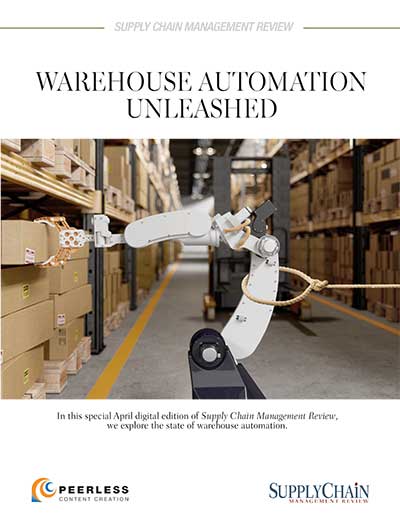Due to a confluence of COVID-19-driven factors, including reduced consumer demand, lower import levels, heavy job losses, the ongoing United States-China trade war, and over all economic unease, a case can be made that the 2020 peak season is shaping up to be much different than normal.
That has been the case, going back to the middle of March, when the COVID-19 pandemic truly took hold, resulting in a shutdown of both the United States and global economies, to varying degrees and timeframes, which was followed by a staggered economic re-opening, which has been largely atypical, with many retail locations remaining closed or being open on a far more limited basis than in what could be considered as “normal” times.
Peak season prospects, in the traditional sense, are in jeopardy, according to Port of Los Angeles (POLA) Executive Director Gene Seroka.
“Our outlook for the remainder of 2020 is continuing to very closely track the impacts of the U.S.-China trade war and the COVID-19 economic shutdown in the U.S., which have caused significant damage to the supply chain,” Seroka said on a recent media call. “We believe the effects of these two items will last throughout the balance of 2020. Although we see some modest demand signals, some economist are predicting that not until the first quarter of 2021 will we expect to see any noticeable economic bounce back with respect to consumer spending. That would mean a cargo uptick ever so slightly in the fourth quarter of this year, but it is a little bit early to say that with any certainty.”
Seroka’s sentiment was echoed to a large degree by Larry Gross, one of the nation’s leading intermodal experts and president of Gross Transportation Consulting.
Gross called any ability to forecast in this current situation a shot in the dark
“There are so many levels of uncertainty to this situation that it behooves people to be extremely flexible right now,” Gross explained. “The range of outcomes is extremely broad. We could go from a continuation of the current downturn and virtually no peak season or, and while it is possible it is not my first choice, in terms of where I think things could be going, you could see a very tight capacity situation in the third quarter, if you see only a modest uptick and enough truck and intermodal capacity comes out of the system. That would be a completely different sort of feeling for [shippers]. I think people need to have contingency plans in place for this very broad array of outcomes.”
While the general consensus points to the lack of a traditional peak season, Brooks Bentz, LM contributing editor and longtime supply chain consultant and practitioner, noted that, in recent years, peak season has shifted from what was widely viewed as typical to something more scattered, in terms of product arrivals into the U.S., in advance of peak, with shippers spreading the acquisition of product out over a longer period of time.
“It is hard to see there being a large surge when we typically would have it, which is late summer and early fall,” noted Bentz. “That said, I think there is a lot of pent-up demand, but a lot of people are satisfying that by online purchasing. If you have not done that before and get into the habit of doing it, you realize it is pretty easy to do a lot of things that way I think the game is going to change, and that is going to mean a continued increase in reliance on parcel carriers like UPS and FedEx
What’s more Bentz said that this could lead to a semi-permanent shift, which is going to impact both the less-than-truckload and the truckload sectors, probably more so the truckload business
“That is what happens in circumstances like this; there are shifts that become tectonic, but we just don’t realize it until after the fact,” he said. “The new normal will not be the old normal—it will be different than it has been.”
Chris Rogers, research director for global trade intelligence firm Panjiva, stressed that the impact of tariffs on peak season needs a sharp focus. The reason for that, he explained, is that in normal times there would be a new round of stockpiling ahead of potential tariffs.
“But the reality is that the retailers might hang back and say ‘we’ve got enough inventories already (for seasonal apparel as an example) and we will wait and see what happens,’” he said. “And as a retailer, you don’t have a huge amount of money to front load product, and you don’t know when consumer demand is going to come back…consumers are more likely to rebuild their savings rather than go shopping.”
SC
MR

Latest Supply Chain News
- Tech investments bring revenue increases, survey finds
- Survey reveals strategies for addressing supply chain, logistics labor shortages
- Israel, Ukraine aid package to increase pressure on aerospace and defense supply chains
- How CPG brands can deliver on supplier diversity promises
- How S&OP provides the answer to in-demand products
- More News
Latest Resources

 Explore
Explore
Topics
Latest Supply Chain News
- Tech investments bring revenue increases, survey finds
- Survey reveals strategies for addressing supply chain, logistics labor shortages
- Israel, Ukraine aid package to increase pressure on aerospace and defense supply chains
- How CPG brands can deliver on supplier diversity promises
- How S&OP provides the answer to in-demand products
- AI, virtual reality is bringing experiential learning into the modern age
- More latest news
Latest Resources

Subscribe

Supply Chain Management Review delivers the best industry content.

Editors’ Picks




